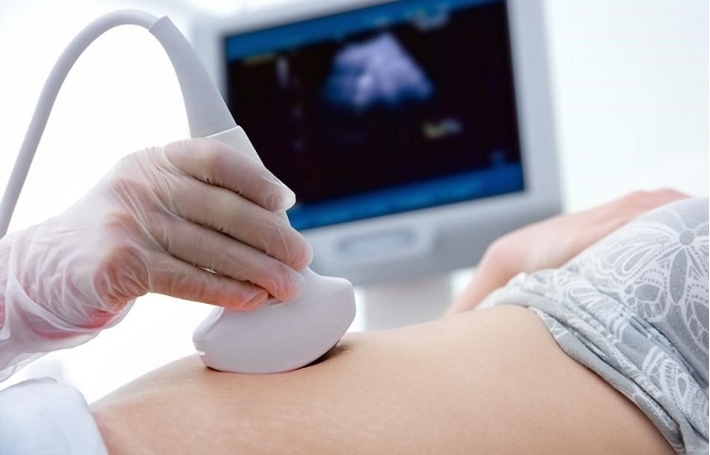Why is fetal echocardiography important?
Congenital echocardiography helps detect fetal heart defects (if any). Therefore, all pregnant women should perform this test as directed by their doctor.

11/2/2019 10:35:02 AM
According to the World Health Organization WHO, the incidence of congenital heart disease is 0.8 - 1%. In which, serious heart defects requiring immediate intervention after birth account for 25%. However, most of the current heart defects can be completely cured and brought back to a normal life if you choose the right time of intervention. Therefore, congenital echocardiography is the solution to help detect heart defects early.
1. Why should mothers do fetal echocardiography?
Congenital heart disease (CHD) is a common abnormality in infants, with a high potential to cause death. Many pregnancies with complex heart defects often die within the first 3 months. However, even though the baby can be born, it will also suffer many effects on the physical and intellectual development such as: slow weight gain, frequent respiratory infections (bronchitis, pneumonia), heart palpitations ... Children often have to be treated with surgery, medicine and more serious a heart transplant. Some children cannot be completely treated and require lifelong monitoring and treatment.
With the development of science and medicine, congenital echocardiography with fetal cardiac 2D - 3D - 4D ultrasound methods (STIC), color Doppler ultrasound ... can detect abnormal defects. Besides, these methods also bring other great benefits for both babies and parents:
-
Echocardiography significantly reduces morbidity and mortality in infants.
-
With early diagnosis, the family can prepare to take good care of the infant and beyond.
-
Helping parents stabilize their emotions and prepare financially to care for their children.
A congenital echocardiogram is an essential test that every woman should have.
2. What is the right time to do an echocardiogram?
In most cases, congenital echocardiography usually gives accurate results at 17 and 18 weeks or later of pregnancy. With some modern ultrasound devices today, an echocardiogram can be done earlier, around 12 weeks. However, even after an echocardiogram, pregnant women will still be asked to do an ultrasound. after a few weeks. This helps to ensure that the results will be more accurate as well as detect other defects.
3. How is an echocardiogram performed?
There are 2 forms of fetal echocardiography: abdominal ultrasound. The procedure is as follows:
Abdominal ultrasound: This is the most common form of ultrasound for the fetal heart. The gel is applied to the womb, followed by the ultrasound probe is gently placed on the womb and photographed. The test is painless and won't harm your baby. This test takes an average of 45 minutes and 120 minutes to perform this test depending on the complexity of the fetal heart.
Endocrine ultrasound: This ultrasound is often used when the family or mother wants to know early about the fetal heart condition. A small ultrasound probe is inserted into the vagina and leaned against the back of the vagina. Next, the probe will take a picture of the fetal heart.
Through an echocardiogram, the mother can know if the baby's heart is abnormal.
4. In what cases is congenital echocardiography indicated?
All pregnant women need an echocardiogram for the fetus, especially in the following cases:
- The mother has a history of diseases such as:
-
Diabetes,
-
Autoimmune disorders such as systemic lupus erythematosus (SLE) or Sjogren's syndrome
-
Use medications, for example, antiepileptic drugs or antipsychotics such as lithium.
-
Heart.
- The child's brother or sister has a history of heart disease.
-
The fetus has structural defects in other systems.
-
Infection of the fetus
- Detect the fetus with slow growth (Intrauterine growth restriction (IUGR) in the second 3 months of pregnancy.
5. What to do after an echocardiogram?
To ensure the health of both mother and baby, pregnant women will be asked to come back for fetal echocardiography monitoring and other necessary tests until delivery. If an abnormal defect is found, the pediatric cardiologist will take additional pictures and explain the current condition of the fetus, including:
-
Can the defects affect the baby before it is born?
-
Do pregnant women need to move right after giving birth?
-
Does your baby need heart surgery after birth?
In addition to an ultrasound of your congenital heart, your doctor may order some other tests such as:
-
Intensive pregnancy ultrasound.
-
MRI of the fetus.
-
Genetic counseling.
-
Counseling on pregnancy control.
-
Amniocentesis.
-
Counseling on issues that parents need to prepare if their babies are at risk of congenital heart disease: Common dangers, ways of care, expenses ... while nurturing children with heart disease.
Professional and accurate congenital echocardiography at CarePlus International Clinic System
CarePlus is an international standard clinic system with 100% foreign investment. In addition to providing dental, pediatric, and general internal services ... CarePlus's Obstetrics and Gynecology are also highly appreciated by:
-
Build a friendly visiting environment.
-
Nice medical facility
-
A team of experienced and leading doctors in the field of congenital echocardiography such as:
|
Doctor |
Experience |
Strength |
|
Dr. Do Thi Cam Giang |
|
Pediatric Cardiology - Fetal Heart. |
|
Dr. Trinh Phuong Kieu |
|
Specializes in consultation and treatment of pediatric cardiovascular diseases. |
-
Modern equipment such as colposcope, 4D ultrasound, digital mammography, osteoporosis meter, fetal heart monitor, on-site laboratory for fast and accurate results ...
-
The process of examination and treatment at the professional CarePlus obstetrics and gynecology clinic, simple procedure, absolute confidentiality, clear and transparent costs.
CarePlus echocardiography service helps mothers feel more secure during pregnancy.
Congenital echocardiography is a solution to help detect heart defects, thereby helping doctors find the most suitable solution to promptly overcome heart defects (if any). For advice or to book an appointment, please contact CarePlus through:
-
Hotline: 1800 6116
-
Email: info@careplusvn.com
-
Fanpage: CarePlus Clinic Vietnam